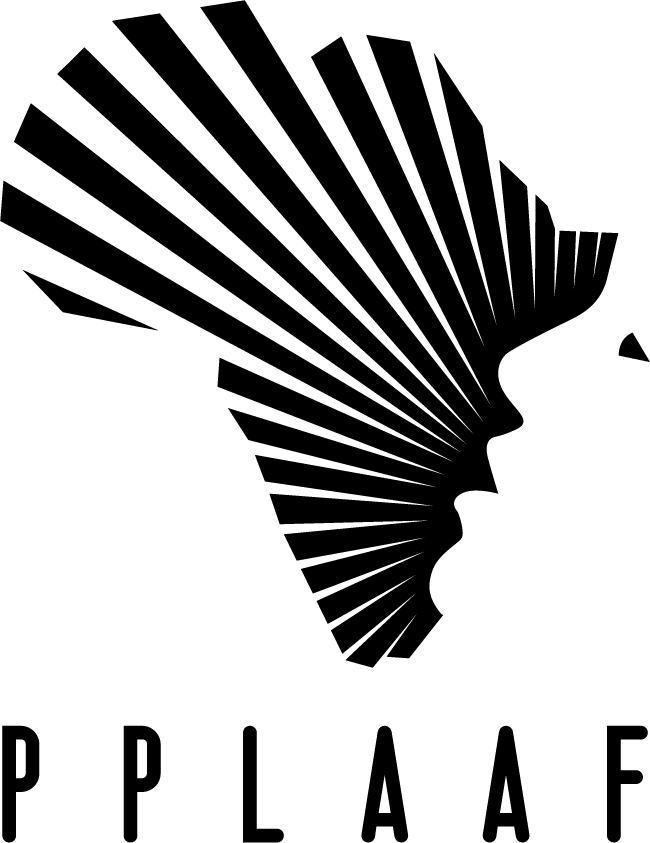Published in 2022
Relevant legislation:
- Benin’s Constitution of 1990
- Law on The Fight Against Corruption and Other Connected Infractions in The Republic Of Benin (2011)
- Decree on the Conditions of Special Protections For Whistleblowers, Witnesses, Experts and Victims (2013)
- Code of Information and Communication in the Republic of Benin (2015)
- Labour Code (1998)
- Law on the Organization of National Defense Secrets (Proposed 2017)
Summary
Benin is one of the most stable African democracies and its citizens enjoy relatively strong civil liberties. The Constitution guarantees “the right to freedom of thought, of conscience, of religion, of creed, of opinion and of expression with respect for the public order established by law and regulations,” and states that “freedom of the press shall be recognized and guaranteed by the State.” In general, these freedoms are respected by the government.
However, protections for whistleblowers are very limited. A Law on The Fight Against Corruption and an associated decree prohibit retaliation against anyone who reports corrupt practices to the national authorities, but no viable channels for reporting information are provided, and disclosures to other entities are not protected.
Journalists generally operate in a relatively free media environment, and Freedom House rates Benin’s Press as “partly free”. In January 2015, the National Assembly passed the Information and Communication Code of Benin, which defines the rights and freedoms of journalists. While defamation is no longer punishable by imprisonment, heavy financial penalties can be applied, and custodial sentences remain in place for incitement to violence or property destruction, or for threats to the “internal security of the state.”
Whistleblower laws and policies
The Law on The Fight Against Corruption and Other Connected Infractions in The Republic Of Benin (2011) provides whistleblowers, witnesses, experts, victims and their relatives with limited “special protection” against possible acts of reprisal or intimidation for the disclosure of corruption-related information. The conditions for this special protection are set out in a 2013 Decree on the Conditions of Special Protections For Whistleblowers, Witnesses, Experts and Victims, which notes that no whistleblower, expert or victim of corruption-related crime can be harassed, reprimanded or sanctioned for having reported or denounced corruption. The Decree calls for reinstatement and/or compensation for employees who have been sanctioned or dismissed for collaborating with the national authorities in the “fight against corruption.” Where threats are made, or a whistleblower is in danger, the minister in charge of security or the minister in charge of national defence will ensure the person’s security through the service of the police or security forces.
Whistleblowers have the right to declare the police station as their address, and in cases in which his or her life is in danger, a judge may allow a whistleblower’s statement to be collected anonymously. However, anonymity is “not possible” in cases in which “knowledge of the identity of the person is essential to the rights of the defence”, and the Law notes that “slanderous or false testimony” can be prosecuted under other legislation. Furthermore, convictions can not be made solely on the basis of anonymous statements. Illegally revealing the identity of a whistleblower is punishable by up to 10 years in prison.
Whistleblowing is not discussed in the Labour Code, and while it is not included in the list of acts that constitute grounds for dismissal, neither is dismissal for whistleblowing specifically identified as an unfair labor practice. Contracts can legitimately be terminated in the event of negligence or “objective and serious” reasons related to the employee’s health, their ineptitude for the position or professional insufficiency. Acts that can represent negligent conduct include refusal to execute duties, malpractice, assault, intoxication and, notably, the violation of professional secrecy. No examples of practices that constitute unfair dismissal are given, but it is noted that damages can be awarded where unfair dismissal is proven. According to the Code, labour inspectors are available to investigate complaints and obliged to keep the details confidential.
Weaknesses and needed reforms
Whistleblowing legislation in Benin is limited. There are no clear channels for disclosing information, protections are limited to disclosures made to the national authorities, and protections offered are inadequate. Whistleblowing in the workplace is not supported by meaningful protection against retaliation, and employers are not obliged to accept or act on complaints.
However, recent indications that whistleblowing may be on the national landscape are encouraging. In February 2017, the Economic Community of West Africa facilitated a meeting between Beninese civil society, government and the media, during which participants are reported to have agreed on the importance of early warning systems and whistleblower protections in the fight against corruption, and to have urged the National Assembly to enact comprehensive national legislation on the protection of whistleblowers.
Secrecy laws
The Information and Communication Code of Benin provides for broad access to state information, and specifically notes that state agents “may disclose and provide evidence of all illicit behavior in public administration. Except in the case of slanderous denunciation, they shall not, in so doing, incur any administrative penalty or disciplinary measure”. Restrictions on the right of access to public information are “justified only in exceptional circumstances” such as public interest, defense secrecy and confidential judicial proceedings. Public bodies are not obliged to share commercial secrets and they may not disclose information obtained from a person responsible for the prevention or detection of a crime if so doing could jeopardize an investigation, reveal a confidential source of information, endanger any person or impair the right of a person to an impartial hearing.
The Law on the Organization of National Defense Secrets, proposed in early 2017 but not yet enacted, provides for prison sentences of up to 20 years for sharing documents critical to national defense secrets with a “non-qualified person” or bringing these documents to the knowledge of the public.
Media and speech laws
The Information and Communication Code of Benin reiterates that “the freedom to speak and write, to print and to publish, to read and to receive information, ideas, thoughts and opinions of choice is guaranteed in the Republic of Benin”, while noting that “these freedoms are exercised in accordance with the law [and] the duty of truth.” Journalists are expressly forbidden from publishing material that incites regionalism, ethnocentrism, discrimination, xenophobia, violence, crime or suicide. Under the Code, the High Authority for Audiovisual and Communication (HAAC) has the authority to punish “media actors” who violate the Code, including through malicious insinuations, the use of offensive words, defamation, calls for public disorder, compromise of public interest and violations of privacy.
Defamation of courts, tribunals, armed forces or public administration is punishable with a fine of up to approximately 18,000 USD, as is defamation of government officials, the president or heads of foreign governments. Defamation of other citizens carries a much smaller fine. Prison terms of up to three years can be imposed for the publication of material with the goal of distracting security forces from their duties; or for the publication of false news that could disturb the “public peace” or undermine the “discipline and morale of the armed forces”. The publication of material that incites crimes against interior national security, such as murder, assassination, arson, or destruction of houses, shops and infrastructure is punishable by up to five years in prison.
The Code recognizes that journalists are “bound by professional secrecy” and can not be obliged to disclose the source and origins of information received in confidence.
Whistleblower cases
The 2009 murder of a Peace Corps volunteer in Benin made international headlines. Kate Puzey was violently killed after reporting suspected sexual assault of minors in the school in which she worked. Despite assurances that her disclosures would be kept confidential, the alleged perpetrator “became aware of Kate’s role in accusing him”. He and his brother were arrested for the murder and acquitted in 2017. President Obama subsequently signed into law the Kate Puzey Peace Corps Volunteer Protection Act of 2011, but the Act relates to sexual assault and general volunteer safety policies, rather than protection of whistleblowers. The Beninese Government issued no formal response.
No further examples of whistleblowing in Benin were identified.
Media rights and freedom
In its 2018 Freedom of the Press report, Freedom House notes that “Benin remains one of Africa’s more open press freedom environments” and rates its press freedom status as “partly free”. The report finds that freedom of speech is generally respected by the government, and notes that the 2015 Information and Communication Code of Benin has brought much-needed clarification on the rights of journalists. However, Freedom House observes that some custodial penalties for press offenses were retained in the Code and cautions that “a number of disturbing trends have emerged since the 2006 election of (now former) President Thomas Boni Yayi, particularly regarding the intimidation of critical reporters and restrictions imposed by … the High Authority on Audiovisual Media and Communication.” The report cites the 2015 suspension of the country’s largest private daily newspaper, Le Matinal, unilaterally imposed by HAAC president Adam Boni Tessi, a Yayi ally.
Reporters without Borders (RWB) ranks Benin 84 out of 180 countries in its 2018 World Press Freedom Index, representing a slide of six places since 2016. RWB condemns the HAAC’s brief closure of opposition broadcast media outlets in 2015 but notes that state TV has provided more coverage of opposition activity since the Talon government took office in March 2016. The report notes that Benin’s journalists enjoy “some freedom of expression and, even if they are sometimes prosecuted and convicted, the sentences are rarely enforced.”
Knowledge, support and action centers
OLC (Observation de Lutte Contre la Corruption)
The Anti-Corruption Observatory (OLC) is responsible for the development and coordination of anti-corruption programs in Benin, and is an autonomous body independent from all the institutions of the State. It was established by the ministers of finance and justice. Headquartered in Cotonou, the OLC’s duties include researching and analyzing corruption and related offenses, and collecting data on corruption and taking measures necessary for the protection of witnesses.
- Contact person and title (if known): Not available
- Address: 2ème et 3ème étage – Immeuble SETON – Batiment Moov, Etoile Rouge, Cotonou. PO Box: 01 BP 7060
- Tel: +229 21 30 86 86, +229 97 07 10 95, + 229 21 31 20 02
- Fax: +229 21 30 10 10
- Website: Not available
- E-mail: Not available
Front des Organisations Nationales contre la Corruption (FONAC)
The Front of National Organizations against Corruption (FONAC)’s mission is to fight corruption in all its forms, including misappropriation of public funds, illicit infringement, trading in influence, forgery, impunity and all practices contrary to good faith. Its activities include identifying and denouncing corruption and economic and financial offenses and following up cases transmitted to the law enforcement.
- Contact person and title (if known): Not available
- Address: Building CHITOU WASSI, Avene Delorme, Carre 003, 08 BP 07 69 Cotonou, Dem. Of Benin
- Tel: + 229 21 31 20 02
- Fax: Not available
- Website: www.fonacbenin.com
- E-mail: fonac1998@gmail.com ; jeanbaptiste_elias@yahoo.fr
Social Watch Benin
Social Watch Benin is a network of NGOs and associations that promotes citizen control of public action in many areas, both at the national level and municipality level. These include interventions to promote transparency and accountability, as well as education on the rights and duties of citizens.
- Contact person and title (if known): Jean-Pierre Degue, program manager
- Address: Cotonou, 6ème Arrondissement, C/487 Jéricho, Immeuble IBIKUNLE Latif
- Tel: +229 61 34 66 40 +229 95 43 08 19 or on Whatsapp : +229 61 47 20 20
- Fax: Not available
- Website: Website: socialwatch.bj
- E-mail: contact@socialwatch.bj
Further information
A provision in the Criminal Procedure Code allows any person to apprehend and bring a person committing a crime punishable by imprisonment to the nearest police station, potentially allowing vigilante justice against journalists.




